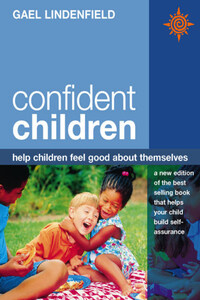Have you ever found yourself feeling jealous of a pheasant? I did, just a few months ago. I was visiting our local zoo, which specializes in breeding and taking care of endangered species, and I came across a beautiful rare pheasant. When I read the note on her cage, I felt a surge of envy. It seems that this lucky bird was currently being given a chance to ‘practise her parenting skills’ by temporarily caring for a number of surrogate chicks. I turned to my husband and said, ‘It’s not fair – all my practice had to take place on Susie and Laura!’
This book is an attempt to provide a more considered, adult response to my concerns about the dangers of ‘not good-enough’ parenting. For many years I have been surrounded by evidence that has convinced me that, in this fast-changing, complex, competitive jungle of a world there is another endangered species – the confident parent! I wonder if you have ever met one: I am talking about a relaxed, guilt-free creature who seems naturally and effortlessly to be able to produce a complete breed of equally happy, confident and competent children. Like me, you are probably much more familiar with the kind of parents who spend a considerable amount of time worrying about whether they are ‘getting it right’, or feeling guilty because they know that they are often ‘getting it wrong’!
Is the problem that we now know too much? Should we simply burn those child psychology books and parenting magazines which have raised our expectations of good-enough parenting to seemingly impossible heights?
I don’t think so, because even though the image of the carefree cave-parent is sometimes very tempting, I cannot believe that either children or parents would have much to gain from turning the clock back. As you have chosen to read this book, I am assuming that you also believe that we now have a responsibility to use the knowledge and wisdom our culture has given us to develop and improve the emotional well-being of our children.
The suggestions and strategies in this book are offered as constructive alternatives to the paralysing anxiety and self-reproach which often seem to attack us when, in spite of our loving efforts, our children behave in a way which could indicate that their confidence is at a low ebb. For example, if we find that they are showing signs of:
– clinging on too long to ‘babyish habits’ such as thumb-sucking or bed-wetting
– under-achieving at school because they are too timid to ask for help or they feel lonely
– getting over-concerned with their work and requiring it to be too perfect
– becoming reluctant to venture from the safety of their home or town
– being frustratingly unable to make up their mind or give an opinion
– becoming immobilized with anxiety, fears, phobias or obsessions














